Trapping Zero Read online
Page 2
He didn’t really want to go back to the empty house alone.
Instead he parked in the short-term lot at Dulles and entered through arrivals. He bought a coffee at a newsstand and sat in a plastic chair, sipping it slowly while a thousand thoughts spun in his head, none snagging long enough to be considered a conscious impression but each passing fleetingly before cycling back around like a whirlwind.
He needed to call Maria, he decided. He needed to hear her voice. She would know what to say, and even if she didn’t there was something about talking to her that always seemed to remedy his ailing mind. Reid did not have his cell phone, but thankfully there were payphones in the airport, a growing rarity in the twenty-first century. Then he had no change to drop into the machine, so he dialed zero first and then the cell phone number that he knew by heart.
There was no answer. The line rang four times before going to voicemail. He didn’t leave one. He wasn’t sure what to say.
At long last the plane arrived and a procession of quick-walking passengers strode down the long corridor, past the gates and security checkpoint and either into the waiting arms of loved ones or hurrying on to baggage claim.
Strickland saw him first. Agent Todd Strickland was young, twenty-seven, with a military-style fade cut and a thick neck. He carried himself with a gentle swagger that was somehow approachable yet authoritarian at the same time. Most importantly, Strickland did not appear at all surprised to see Reid; the CIA undoubtedly would have told him that Kent Steele had been released. He merely nodded once to Reid as he led the two teenage girls down the lengthy walkway.
It seemed that Strickland had not told either of his daughters that he would be there upon their arrival, and for that Reid was grateful. Maya spotted him next, and though her legs kept moving her jaw fell slack in astonishment. Sara blinked twice, and then her lips spread wide in a genuinely elated smile. Despite her arm being in a cast and sling—she had broken her arm after taking a tumble out of a moving train—she ran to him. “Daddy!”
Reid dropped to one knee and caught her in a tight embrace. Maya hurried over right after her younger sister, and the three of them held each other for a long moment.
“How?” Maya whispered hoarsely in his ear. Both of the girls had been given plenty of reason to believe they wouldn’t see their father again for what might have been a long time.
“We’ll talk later,” Reid promised. He released his grip on them and stood to face Strickland. “Thank you, for getting them home safely.”
Strickland nodded and shook Reid’s hand. “Just keeping my word.” In Eastern Europe, Strickland and Reid had reached a strange sort of mutual understanding, and the younger agent had made the promise to keep the two girls safe, whether Reid was around or not. “I suppose I’ll get going,” he told them. “You two be good.” He grinned at the girls, and strode away from the small family.
The ride home was short, only half an hour, and Sara made it feel even shorter with her uncharacteristic chatter. She told him how well Agent Strickland had treated them, and how the doctors in Poland let her pick her own color of cast for her arm, but she still chose the ordinary beige so that she could color it herself with markers. Maya sat oddly quiet in the passenger seat, every now and then glancing over her shoulder at her little sister and smiling briefly.
Then they arrived at their home in Alexandria, and it was as if the front door was a vacuum for any cheerful or joyous thoughts. The mood turned on a dime; the last time any of them had stepped foot into the foyer there had been a dead man lying just before the kitchen. Dave Thompson, their neighbor, was a retired CIA agent who had been killed by the assassin who had kidnapped Maya and Sara.
No one spoke as Reid closed the door and punched in the code to activate the alarm system. The girls seemed hesitant to even take a step further into the house.
“It’s okay,” he told them quietly, and though he hardly believed it himself he led the way towards the kitchen in an effort to prove that there was nothing to be afraid of. The crime scene clean-up crew had done a thorough job, but it was still plainly evident from the strong scent of ammonia and the spotless grout between the tiles that someone had been here, mopping up blood and eliminating any trace that a murder had occurred.
“Is anyone hungry?” Reid asked, trying to sound untroubled but very much coming off as loud and theatrical.
“No,” Maya said quietly. Sara shook her head.
“Okay.” The pregnant pause that followed was palpable, like an invisible balloon inflating to impossible volume in the span between them. “Well,” Reid said finally, hoping to burst it, “I don’t know about you two, but I’m exhausted. I think we should all get some rest.”
The girls nodded again. Reid kissed the top of Sara’s head and she trudged back down the foyer—edging close to one wall, he noticed, though there was nothing blocking her path—and up the stairs.
Maya waited, saying nothing but listening intently for the footfalls on the stairs to reach the carpeted top. She tugged off her shoes using the toes of each opposite foot, and then asked very suddenly, “Is he dead?”
Reid blinked twice. “Is who dead?”
Maya did not look up. “The man who took us. The one who killed Mr. Thompson. Rais.”
“Yes,” Reid said quietly.
“Did you kill him?” Her gaze was hard, but not angry. She wanted the truth, not another cover or another lie.
“Yes,” he admitted after a long moment.
“Good,” she said in nearly a whisper.
“Did he tell you his name?” Reid asked.
Maya nodded, and then she looked up at him unflinchingly. “There was another name he wanted me to know. Kent Steele.”
Reid closed his eyes and sighed. Somehow Rais continued to plague him, even from beyond the grave. “I’m done with that now.”
“You promise?” She raised both eyebrows, hoping he was sincere.
“Yes. I promise.”
Maya nodded. Reid knew all too well that it wouldn’t the end of it; she was far too smart and inquisitive to let things lie. But for the moment, his answers seemed to satisfy her and she headed up the stairs.
He hated lying to his daughters. He hated even more lying to himself. He wasn’t done with field work—maybe paid field work, but he still had a lot to do if he was going to get to the bottom of the conspiracy he had only begun to unearth. He had no choice; as long as he knew anything, he was still in danger. His girls could still in danger.
He wished for a moment that he didn’t know anything, that he could forget what he knew about the agency, about conspiracies, and just be a college professor and a father to his daughters.
But you can’t. So you need to do the opposite.
He didn’t need fewer memories; he had tried that before and it hadn’t worked out so well. He needed more memories. The more he could recall about what he knew two years ago, the less work he would have to do to uncover the truth. And maybe he wouldn’t have to worry for long.
Standing there in the kitchen mere feet from where Thompson was killed, Reid made his decision. He would find the old letter from Alan Reidigger—and the name of the Swiss neurologist that had implanted the memory suppressor in his head.
CHAPTER ONE
Abdallah bin Mohammed was dead.
The old man’s body lay upon a slab of granite in the courtyard of the compound, a walled cluster of boxy beige structures located roughly fifty miles to the west of Albaghdadi in the desert of Iraq. It was there that the Brotherhood had survived the expulsion from Hamas, as well as the scrutiny of American forces during the occupation and subsequent democratizing of the country. To anyone outside the Brotherhood, the compound was merely a commune of orthodox Shiites; raids and forced inspections of the property had yielded nothing. Their caches were well hidden.
The old man had seen personally to their survival, spending his own fortune in service of the perpetuation of their ideology. But now, bin Mohammed was dead.
&n
bsp; Awad stood stoically beside the slab that held the old man’s ashen corpse. Bin Mohammed’s four wives had already given ghusl, washing his body three times before shrouding him in white. His eyes were closed peacefully, his hands crossed on his chest, right over left. There was not a mark or scratch on him; for the last six years he had lived and died in the compound, not outside its walls. He had not been killed by mortar fire or drone strikes as so many other mujahideen had.
“How?” Awad asked in Arabic. “How did he die?”
“He had a seizure in the night,” said Tarek. The shorter man stood on the opposite side of the stone slab, facing Awad. Many in the Brotherhood considered Tarek to be the second in command to bin Mohammed, but Awad knew his capacity had been little more than messenger and caretaker as the old man’s health declined. “The seizure brought on a heart attack. It was instant; he did not suffer.”
Awad laid a hand on the old man’s unmoving chest. Bin Mohammed had taught him much, not only of belief but also of the world, its many plights, and what it meant to lead.
And he, Awad, saw before him not just a corpse but an opportunity. Three nights earlier Allah had gifted him with a dream, though now it was difficult to call it just that. It was prognostic. In it he saw bin Mohammed’s death, and a voice told him that he would rise up and lead the Brotherhood. The voice, he was certain, had belonged to the Prophet, speaking on behalf of the One True God.
“Hassan is on a munitions raid,” Tarek said quietly. “He does not yet know that his father has passed. He returns today; soon he will know the mantle of leading the Brotherhood falls to him—”
“Hassan is weak,” Awad said suddenly, more harshly than he intended. “As bin Mohammed’s health declined, Hassan did nothing to keep us from weakening commensurately.”
“But…” Tarek hesitated; he was well aware of Awad’s flaring temper. “The duties of leadership fall to the eldest son—”
“This is not a dynasty,” Awad contended.
“Then who…?” Tarek trailed off as he realized what Awad was suggesting.
The younger man narrowed his eyes but said nothing. He did not need to; a glare was more than enough of a threat. Awad was young, not yet even thirty, but he was tall and strong, his jaw as rigid and unyielding as his belief. Few would speak against him.
“Bin Mohammed wanted me to lead,” Awad told Tarek. “He said so himself.” That was not entirely true; the old man had said on several occasions that he saw the potential for greatness in Awad, and that he was a natural leader of men. Awad interpreted the statements as a declaration of the old man’s intentions.
“He said nothing of the sort to me,” Tarek dared to say, however quietly he uttered it. His gaze was cast downward, not meeting Awad’s dark eyes.
“Because he knew you are weak as well,” Awad challenged. “Tell me, Tarek, how long has it been since you ventured outside these walls? How long have you lived off the charity and safety of bin Mohammed, unconcerned with bullets and bombs?” Awad leaned forward, over the old man’s body, as he quietly added, “How long do you think you would last with only the clothes on your back when I take power and cast you out?”
Tarek’s lower lip moved, but no sound escaped his throat. Awad smirked; the short, jowled Tarek was afraid.
“Go on,” Awad prodded. “Speak your mind.”
“How long…” Tarek gulped. “How long do you think you will last within these walls without the funding of Hassan bin Abdallah? We will be in the same position. Just different places.”
Awad grinned. “Yes. You are astute, Tarek. But I have a solution.” He leaned over the slab and lowered his voice. “Corroborate my claim.”
Tarek looked up sharply, surprised by Awad’s words.
“Tell them you heard what I heard,” he continued. “Tell them that Abdallah bin Mohammed named me leader in the wake of his passing, and I swear that you will always have a place in the Brotherhood. We will reclaim our strength. We will make our name known. And the will of Allah, peace be upon Him, will be done.”
Before Tarek could reply, a sentry shouted across the courtyard. Two men heaved open the heavy iron gates just in time for two trucks to rumble through, the treads of their tires thick with wet sand and mud from recent rain.
Eight men emerged—all that had left had returned—but even from his vantage point Awad could tell that the raid had gone poorly. There were no munitions gained.
Of the eight, one stepped forward, his eyes wide in shock as he stared at the stone slab between Awad and Tarek. Hassan bin Abdallah bin Mohammed was thirty-four years old, but he still had the gaunt aspect of a teenager, his cheeks shallow and his beard patchy.
A soft moan escaped Hassan’s lips as he recognized the figure lying still on the slab. He ran to it, his shoes kicking up sand behind him. Awad and Tarek stepped back, giving him space as Hassan flung himself over the body of his father and sobbed loudly.
Weak. Awad sneered at the scene before him. Taking over the Brotherhood will be easy.
That evening in the courtyard, the Brotherhood performed the Salat-al-Janazah, the funeral prayers for Abdallah bin Mohammed. Each person present knelt in three rows facing Mecca, with his son Hassan closest to his body and his wives tailing the end of the third row.
Awad knew that immediately following the rites, the body would be interred; Muslim tradition dictated that a body be buried as soon as possible following death. He was the first to rise from prayer, and he summoned his most fervent voice as he spoke. “My brothers,” he began. “It is with great sorrow that we commit Abdallah bin Mohammed to the earth.”
All eyes turned his way, some in confusion at his sudden disruption, but no one rose or spoke against him.
“Six years have passed since the hypocrisy of Hamas saw us exiled from Gaza,” Awad continued. “Six years we have been banished to the desert, living off the charity of bin Mohammed, scavenging and raiding what we can. Six years now we have lived a lie and dwelled in the shadows of Hamas. Of Al-Qaeda. Of ISIS. Of Amun.”
He paused as he met each pair of eyes in turn. “No more. No more will the Brotherhood hide. I have devised a plan and before Abdallah’s death, I detailed my plan to him and received his blessing. We, brothers, will enact this plan and assert our faith. We will perish the heretics, and the entire world will know the Brotherhood. I promise you.”
Many, even most heads nodded in the courtyard. One man stood up, a tough and somewhat cynical brother called Usama. “And what is this plan, Awad?” he asked, his voice challenging. “What great plot do you have in mind?”
Awad smiled. “We are going to orchestrate the most holy jihad ever committed on American soil. One that will make Al-Qaeda’s attack on New York fruitless.”
“How?” Usama demanded. “How will we accomplish this?”
“All will be revealed,” Awad said patiently. “But not this night. This is an evening for reverence.”
Awad did have a plan. It was one that had been building in his mind for some time now. He knew it was possible; he had spoken with the Libyan, and had learned of the Israeli journalists, and of the congressional attaché from New York who would soon be in Baghdad. It was serendipitous, the way in which everything had seemed to fallen in place—including the death of Abdallah. Awad had even gone so far as to broker a preliminary agreement with the arms dealer who had access to the necessary equipment for the attack on the US city, but he had lied about sharing it with Abdallah. The old man was a leader, a friend and a benefactor to the Brotherhood—and for that Awad was grateful—but he never would have agreed to it. It required substantial funding, resources that could threaten to bankrupt their resources if it went awry.
And because of that requirement, Awad knew he would have to ingratiate himself to Hassan bin Abdallah. The duty of burial usually fell to the closest male kin, but Awad could hardly imagine Hassan’s thin, lanky arms managing to dig a hole deep enough. Besides, helping Hassan would give them an opportunity to bond—and to discuss Awad’
s plans.
“Brother Hassan,” said Awad. “I hope that you will honor me by allowing me to help you bury Abdallah.”
The anemic Hassan gazed back at him and nodded once. Awad could see in the young man’s eyes that he was petrified at the thought of leading the Brotherhood. The two of them broke rank from the three prayer lines to retrieve shovels.
Once they were out of earshot of the others, bathed in the moonlight of the open courtyard, Hassan cleared his throat and asked, “What is this plan of yours, Awad?”
Awad bin Saddam held back a grin. “It begins,” he said, “with the kidnapping of three men, tomorrow, not far from here. It ends with a direct attack on the city of New York.” He paused and put a heavy hand on Hassan’s shoulder. “But I cannot orchestrate this alone. I need your help, Hassan.”
Hassan’s throat flexed, and he nodded.
“I promise you,” said Awad, “that sin-ravaged nation of greedy apostates will suffer incalculable loss. The Brotherhood will at last be recognized as a force of Islam.”
And, he kept to himself, the name Awad bin Saddam will find its place in history.
CHAPTER TWO
“Remember, remember, the fifth of November,” said Professor Lawson as he paced before a classroom of forty-seven students in Healy Hall of Georgetown University. “What does that mean?”
“That you don’t realize it’s only April?” joked a brown-haired kid in the first row.
A few students chuckled. Reid grinned; this was his element, the classroom, and it felt very good to be back. Almost like things were back to normal. “Not quite. That’s actually the first line of a poem that commemorates an important event—or a near-event, if you will—in English history. November fifth, anybody?”
A young brunette woman a few rows back politely raised her hand and offered, “Guy Fawkes Day?”

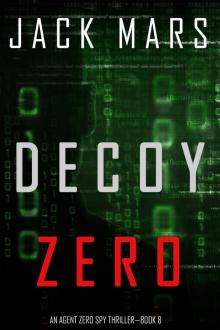 Decoy Zero
Decoy Zero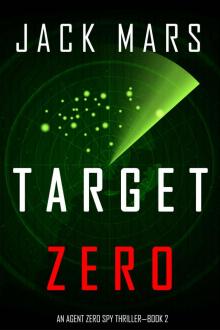 Target Zero
Target Zero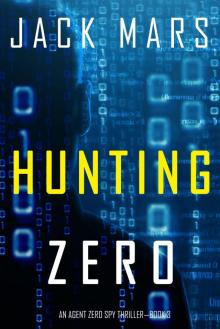 Hunting Zero
Hunting Zero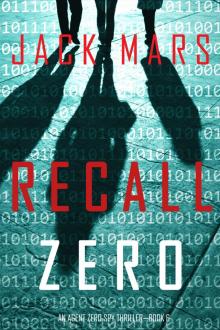 Recall Zero
Recall Zero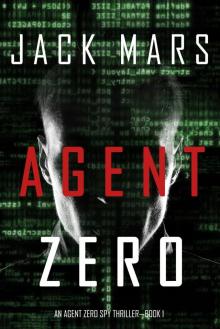 Agent Zero
Agent Zero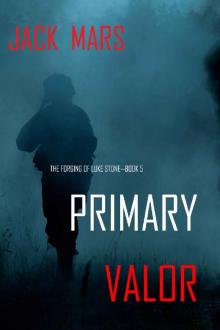 Primary Valor
Primary Valor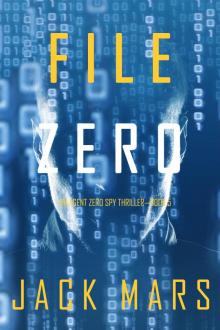 File Zero
File Zero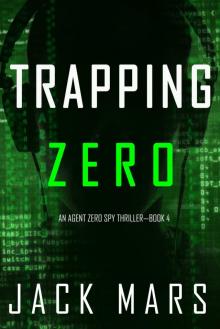 Trapping Zero
Trapping Zero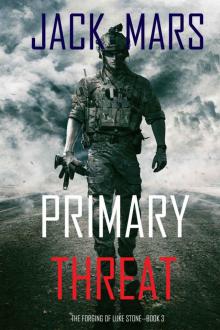 Primary Threat
Primary Threat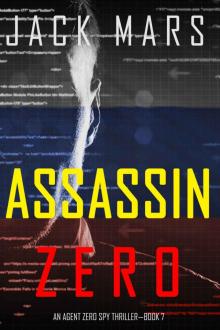 Assassin Zero
Assassin Zero Zero Zero
Zero Zero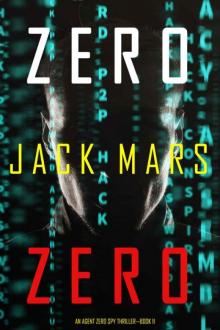 Zero Zero (An Agent Zero Spy Thriller—Book #11)
Zero Zero (An Agent Zero Spy Thriller—Book #11)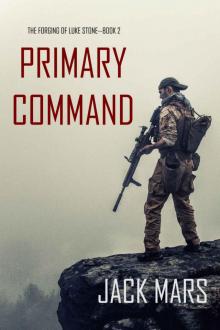 Primary Command
Primary Command![[Luke Stone 02.0] Oath of Office Read online](http://i1.bookreadfree.com/i/03/21/luke_stone_02_0_oath_of_office_preview.jpg) [Luke Stone 02.0] Oath of Office
[Luke Stone 02.0] Oath of Office House Divided
House Divided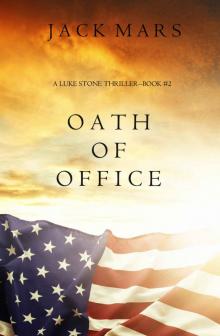 Oath of Office (a Luke Stone Thriller—Book #2)
Oath of Office (a Luke Stone Thriller—Book #2) Our Sacred Honor (A Luke Stone Thriller—Book 6)
Our Sacred Honor (A Luke Stone Thriller—Book 6)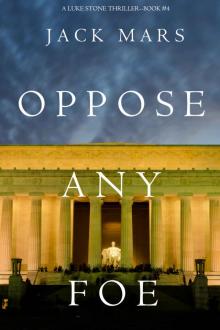 Luke Stone 04 - Oppose Any Foe
Luke Stone 04 - Oppose Any Foe Our Sacred Honor
Our Sacred Honor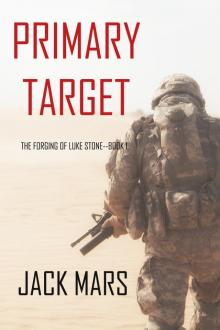 Primary Target
Primary Target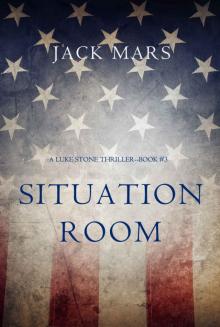 Luke Stone 03 - Situation Room
Luke Stone 03 - Situation Room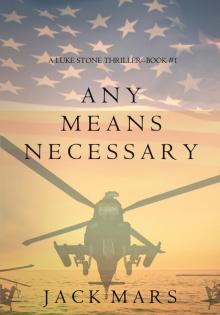 Any Means Necessary: A Luke Stone Thriller (Book 1)
Any Means Necessary: A Luke Stone Thriller (Book 1) Oath of Office
Oath of Office